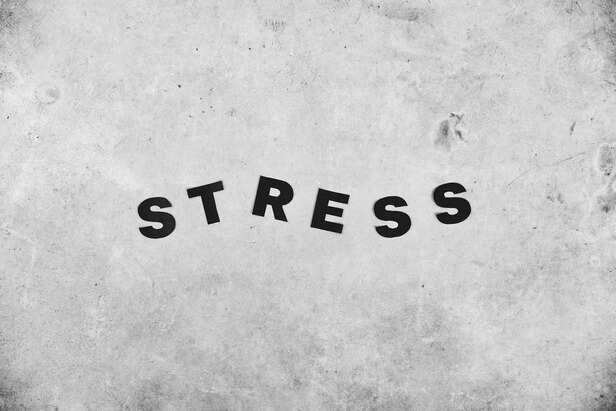Toxic Positivity in India: The Pressure to Always Be Happy
Riya Kumari | Feb 22, 2025, 23:59 IST

( Image credit : Pexels )
In a country like India, where the culture is rich with contradictions and complexities, there’s this prevailing narrative that we need to be happy at all costs. Happiness is not just a state of mind—it’s a performance, a mask we wear to blend in. And it’s not just about personal expectations. It’s an entire social contract we’ve signed without even knowing it. Smile, laugh, be cheerful, and above all, don’t ever admit to being anything less than ‘fine.’ Because if you do, you might be labeled as negative, ungrateful, or worse, weak.
We’ve all been there. That awkward moment when someone asks how you’re doing, and, without missing a beat, you force a smile and say, "Everything’s great!" because you know that in India, being anything less than joyful is almost a crime. There's a pressure to perform happiness, to live up to an impossible standard where only positivity is seen as acceptable. But here’s the thing: the pursuit of constant happiness isn’t just unrealistic—it’s toxic.
1. The Burden of Forced Joy

Here’s the uncomfortable truth: the pressure to always be happy comes from all sides. It’s not just that one relative at a family gathering, asking, “How’s everything going, beta?” It’s the constant barrage of “#GoodVibesOnly” from social media, the "be positive" quotes shared in every corner of the internet, and the way people look at you like you’re broken when you dare to express frustration or sadness. In India, happiness isn’t something you feel in the quiet moments of your life. It’s an expectation. And this expectation is dangerous. It disregards the full spectrum of human emotions—emotions that aren’t just fleeting or to be brushed aside. Pain, sadness, confusion, frustration—they’re all part of the human experience. But here’s the kicker: we’re taught from an early age that these feelings aren’t acceptable. Instead, we’re told to replace them with that ever-reliable smile, the one that says, “I’m fine, I’m okay,” even when we’re anything but.
This need to appear happy all the time builds walls between people. It creates an environment where vulnerability is seen as a flaw, and the truth—about struggles, doubts, and fears—becomes something to be hidden away. The problem isn’t that people want you to be happy; it’s that they want you to deny everything that isn’t happiness. And that, my friend, is where the toxicity lies.
2. The Falsehood of Constant Positivity

Now, don’t get me wrong—positivity in itself isn’t the issue. It’s the way it's weaponized. The way it turns from a helpful tool to a harmful expectation. In a society where so many are dealing with daily challenges—be it economic struggles, social pressures, or personal battles—telling someone to just “be happy” is not only dismissive, it’s cruel. It erases the very real complexities of life and reduces everything to a simplistic, binary choice: You can either be happy, or you can be nothing. What’s even more dangerous is the guilt that comes with failing to meet this standard. Because when you aren’t happy—when the reality of life hits you full force—you start questioning yourself. Am I doing something wrong? Am I failing at this thing called life? And then you start pretending. You smile when you don’t feel like smiling. You laugh when you don’t feel like laughing. You say, “I’m fine” because that’s what is expected of you, even though everything within you is far from fine.
This cycle of pretending to be happy can wear you down in ways that aren’t immediately visible. It chips away at your mental health because you’re not dealing with the real issues. Instead, you’re pushing them aside, stuffing them under the carpet, because society tells you that only good vibes are worthy. Only “success” and “happiness” are acceptable.
3. The Real Cost of Fake Happiness

Toxic positivity doesn’t just affect our individual well-being—it affects how we relate to each other as a society. We live in a culture where people are often more concerned with appearances than reality. The reality is that no one’s life is perfect. No one is perpetually happy. And anyone who pretends otherwise is either lying or in denial. The constant pressure to maintain this facade of “good vibes” doesn’t allow for honesty. It doesn’t allow for growth, because you can’t grow if you’re constantly running away from your struggles.
And here’s the thing: growth doesn’t happen in the good times. It doesn’t happen when you’re riding high on success or basking in the glow of perfect moments. It happens when you face challenges, when you feel the weight of life on your shoulders and you choose to keep going anyway. It happens when you embrace every part of yourself—the messy, complicated, imperfect parts—and understand that it’s all part of the human experience.
If we really want to live more meaningful lives, we need to start being okay with discomfort. We need to stop pretending that everything is always fine and start acknowledging that sometimes, it’s not. It’s okay to feel sad, to feel frustrated, to feel lost. It’s okay to have bad days. And, more importantly, it’s okay to talk about them.
4. Reclaiming Emotional Honesty

So, what’s the way forward? How do we break the cycle of toxic positivity? How do we reclaim the right to feel and express what we really feel without guilt or shame? It starts with acceptance. It starts with understanding that human beings are meant to feel a range of emotions, not just happiness. We can still find joy, but we don’t have to force it. We need to foster a culture where vulnerability is seen as strength, not weakness. Where saying “I’m not okay” is met with compassion, not criticism. Where people can share their struggles without fear of being judged. It’s time we embrace the complexity of human emotions—not just the shiny, surface-level ones, but the deeper, sometimes darker feelings that make us who we are.
In the end, it’s not about rejecting positivity. It’s about rejecting the lie that we need to be happy all the time to be worthy. The truth is much more nuanced. The truth is that we can be sad, confused, angry, and still be worthy of love, respect, and care. Life isn’t about the constant pursuit of happiness. It’s about being present in the mess, embracing the lows, celebrating the highs, and accepting that it’s all part of the journey.
1. The Burden of Forced Joy

Happy
( Image credit : Pexels )
Here’s the uncomfortable truth: the pressure to always be happy comes from all sides. It’s not just that one relative at a family gathering, asking, “How’s everything going, beta?” It’s the constant barrage of “#GoodVibesOnly” from social media, the "be positive" quotes shared in every corner of the internet, and the way people look at you like you’re broken when you dare to express frustration or sadness. In India, happiness isn’t something you feel in the quiet moments of your life. It’s an expectation. And this expectation is dangerous. It disregards the full spectrum of human emotions—emotions that aren’t just fleeting or to be brushed aside. Pain, sadness, confusion, frustration—they’re all part of the human experience. But here’s the kicker: we’re taught from an early age that these feelings aren’t acceptable. Instead, we’re told to replace them with that ever-reliable smile, the one that says, “I’m fine, I’m okay,” even when we’re anything but.
This need to appear happy all the time builds walls between people. It creates an environment where vulnerability is seen as a flaw, and the truth—about struggles, doubts, and fears—becomes something to be hidden away. The problem isn’t that people want you to be happy; it’s that they want you to deny everything that isn’t happiness. And that, my friend, is where the toxicity lies.
2. The Falsehood of Constant Positivity

Struggle
( Image credit : Pexels )
Now, don’t get me wrong—positivity in itself isn’t the issue. It’s the way it's weaponized. The way it turns from a helpful tool to a harmful expectation. In a society where so many are dealing with daily challenges—be it economic struggles, social pressures, or personal battles—telling someone to just “be happy” is not only dismissive, it’s cruel. It erases the very real complexities of life and reduces everything to a simplistic, binary choice: You can either be happy, or you can be nothing. What’s even more dangerous is the guilt that comes with failing to meet this standard. Because when you aren’t happy—when the reality of life hits you full force—you start questioning yourself. Am I doing something wrong? Am I failing at this thing called life? And then you start pretending. You smile when you don’t feel like smiling. You laugh when you don’t feel like laughing. You say, “I’m fine” because that’s what is expected of you, even though everything within you is far from fine.
This cycle of pretending to be happy can wear you down in ways that aren’t immediately visible. It chips away at your mental health because you’re not dealing with the real issues. Instead, you’re pushing them aside, stuffing them under the carpet, because society tells you that only good vibes are worthy. Only “success” and “happiness” are acceptable.
3. The Real Cost of Fake Happiness

Stress
( Image credit : Pexels )
Toxic positivity doesn’t just affect our individual well-being—it affects how we relate to each other as a society. We live in a culture where people are often more concerned with appearances than reality. The reality is that no one’s life is perfect. No one is perpetually happy. And anyone who pretends otherwise is either lying or in denial. The constant pressure to maintain this facade of “good vibes” doesn’t allow for honesty. It doesn’t allow for growth, because you can’t grow if you’re constantly running away from your struggles.
And here’s the thing: growth doesn’t happen in the good times. It doesn’t happen when you’re riding high on success or basking in the glow of perfect moments. It happens when you face challenges, when you feel the weight of life on your shoulders and you choose to keep going anyway. It happens when you embrace every part of yourself—the messy, complicated, imperfect parts—and understand that it’s all part of the human experience.
If we really want to live more meaningful lives, we need to start being okay with discomfort. We need to stop pretending that everything is always fine and start acknowledging that sometimes, it’s not. It’s okay to feel sad, to feel frustrated, to feel lost. It’s okay to have bad days. And, more importantly, it’s okay to talk about them.
4. Reclaiming Emotional Honesty

Beach
( Image credit : Pexels )
So, what’s the way forward? How do we break the cycle of toxic positivity? How do we reclaim the right to feel and express what we really feel without guilt or shame? It starts with acceptance. It starts with understanding that human beings are meant to feel a range of emotions, not just happiness. We can still find joy, but we don’t have to force it. We need to foster a culture where vulnerability is seen as strength, not weakness. Where saying “I’m not okay” is met with compassion, not criticism. Where people can share their struggles without fear of being judged. It’s time we embrace the complexity of human emotions—not just the shiny, surface-level ones, but the deeper, sometimes darker feelings that make us who we are.
In the end, it’s not about rejecting positivity. It’s about rejecting the lie that we need to be happy all the time to be worthy. The truth is much more nuanced. The truth is that we can be sad, confused, angry, and still be worthy of love, respect, and care. Life isn’t about the constant pursuit of happiness. It’s about being present in the mess, embracing the lows, celebrating the highs, and accepting that it’s all part of the journey.
